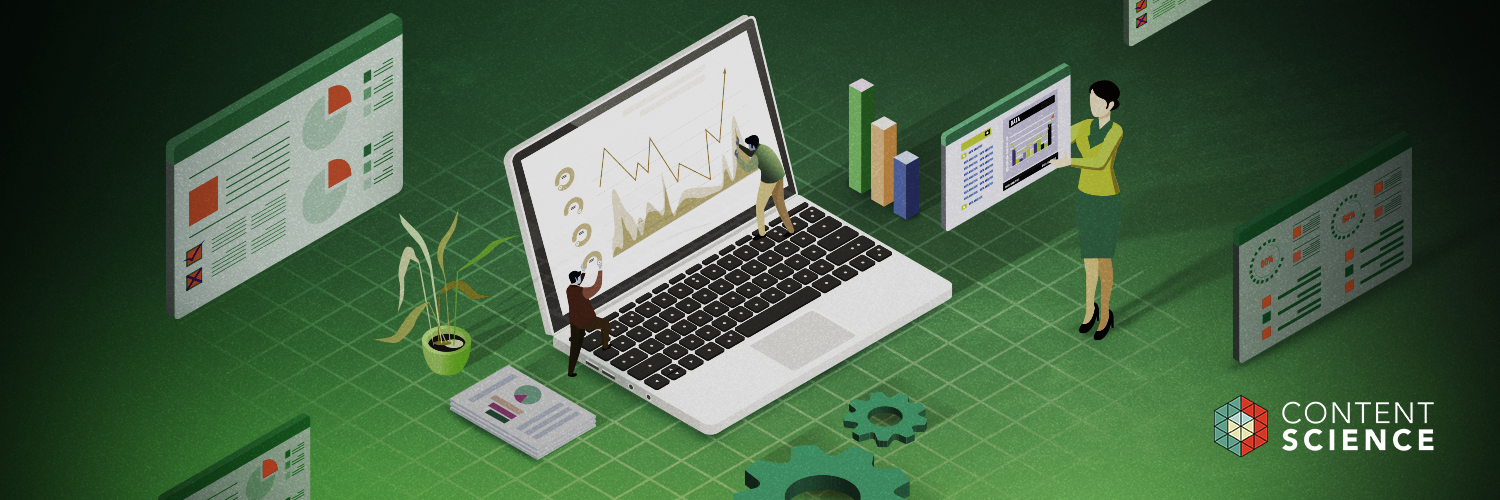
In today’s digital world, every content professional is aware that analytics are important. But even the savviest content professionals can find defining and using analytics to be a challenge. It used to be that tracking pageviews or unique visitors was sufficient. Not anymore. Analytics now are far more sophisticated and complex.
And, analytics are more essential than ever in making good decisions about content. From strategy, to user experience, to individual tactics, analytics should be your content guide.
What are content analytics?
We think of content analytics as the trails left behind by people and machines as content is delivered, discovered, and consumed. All of this data that people and machines leave behind is what makes content an asset.
Content analytics encompasses a wide variety of metrics. In addition to standard data such as pageviews and downloads, we also look at voice of customer measures such as sentiment and perceptions, as well as questions and decisions users have and make using content.
How do you use analytics to make decisions about content?
You can use content analytics for a wide range of decision making scenarios. Here are some examples:
Strategy: From a strategic standpoint, you can use analytics to help you decide what content to keep, what to do more of, and what to get rid of. When you regularly evaluate the impact of content, you can prove that your strategy is working. In this case, a global food and beverage company could demonstrate quickly that their transformed intranet content was making employees more successful in completing goals. And that helped secure resources to transform more intranet content.
Personalization: You can also use analytics to figure out whether you need to personalize or tailor content for specific audiences or customers. This chart shows an example of when a customer requests content and the most effective combination of content is delivered using cohort analysis.
Optimization: Analytics can help you determine whether you need to experiment with changing content headlines, images, or layout to improve performance. This slide shows an example of using analytics to track the impact of optimizations to make template improvements.
Once you have a solid analytics foundation, this data can help inform higher level business decisions such as gaining insights into what your customers care about most, what they like and don’t like, and what resonates with them. These types of insights can influence:
- Marketing campaigns
- Customer success and support decisions
- Product and feature prioritization
What’s the connection between analytics and success?
We have found consistently that teams that evaluate content perform better. This table shows a comparison between two groups we analyzed as part of our latest content operations study. On every measure of success, teams that evaluate content are doing far better than those that don’t. For example, 8.2% of teams that evaluate content say they have clear goals and understand how to achieve them. Only 38% of teams that don’t evaluate content say the same.
How do you get started with content analytics?
If you’re new to analytics or trying to deepen your understanding, you’re not alone. What Content Science has found through our work with clients of all types and sizes is that the best place to start is with questions. What are your questions about your content? Start with this prompt before diving into any data. Take the time to figure out what you want to know.
Make note of any and all questions. Don’t worry about whether you have or can get the data to answer the questions, just focus on generating the right questions.
When you work on coming up with questions, we find that patterns and themes typically emerge, allowing you to group and organize your questions. From there, now it’s time to think through how to answer the questions. In some cases, the answer will be obvious. In other cases, getting the right data to answer the question may be more complex.
This is when you can start to pinpoint the data that will give you specific answers to your questions and how you can get this data. Is it existing data you can gather from a tool you already use? Is it data that may be easily available but perhaps you need a new analytics tool? You may even need to look at whether your content is formatted in the right way to be able to collect the data you need.
Once you start asking the right questions, you will be able to start creating a detailed content analytics plan and roadmap. Eventually, you may look into building an analytics dashboard to serve as a one-stop-shop for all of your data on content effectiveness and impact. And with the right data and regular reporting, you will be able to garner actionable insights to enhance content performance on an ongoing basis.
Learn more about content analytics in the BrightTALK webinar featuring Colleen Jones: The Content Advantage: How Content Analytics Inform Our Decisions About Content.
Events, Resources, + More
New Data: Content Ops + AI
Get the latest report from the world's largest study of content operations. Benchmarks, success factors, commentary, + more!
The Ultimate Guide to End-to-End Content
Discover why + how an end-to-end approach is critical in the age of AI with this comprehensive white paper.
The Content Advantage Book
The much-anticipated third edition of the highly rated book by Colleen Jones is available at book retailers worldwide. Learn more!
20 Signs of a Content Problem in a High-Stakes Initiative
Use this white paper to diagnose the problem so you can achieve the right solution faster.

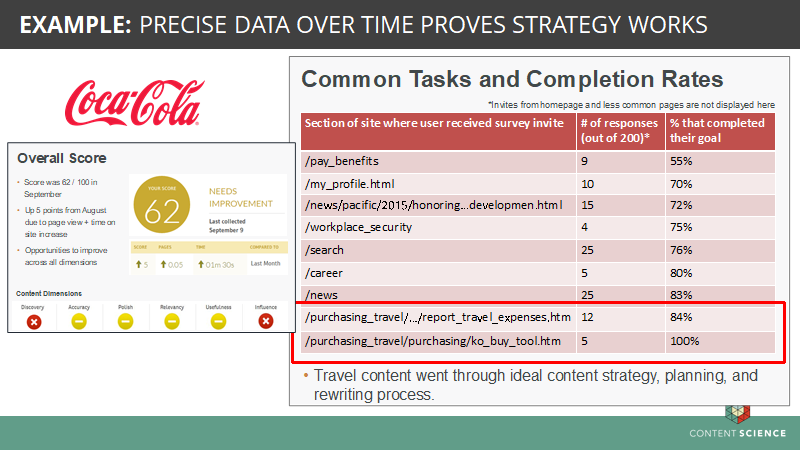


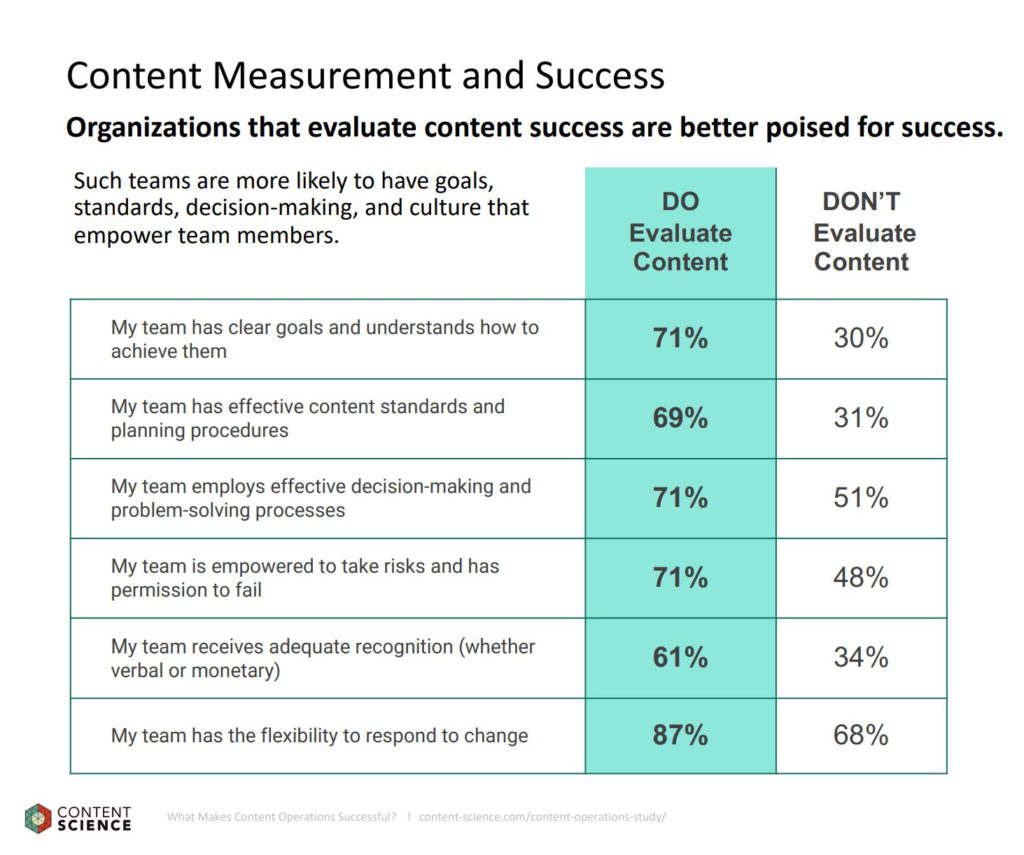

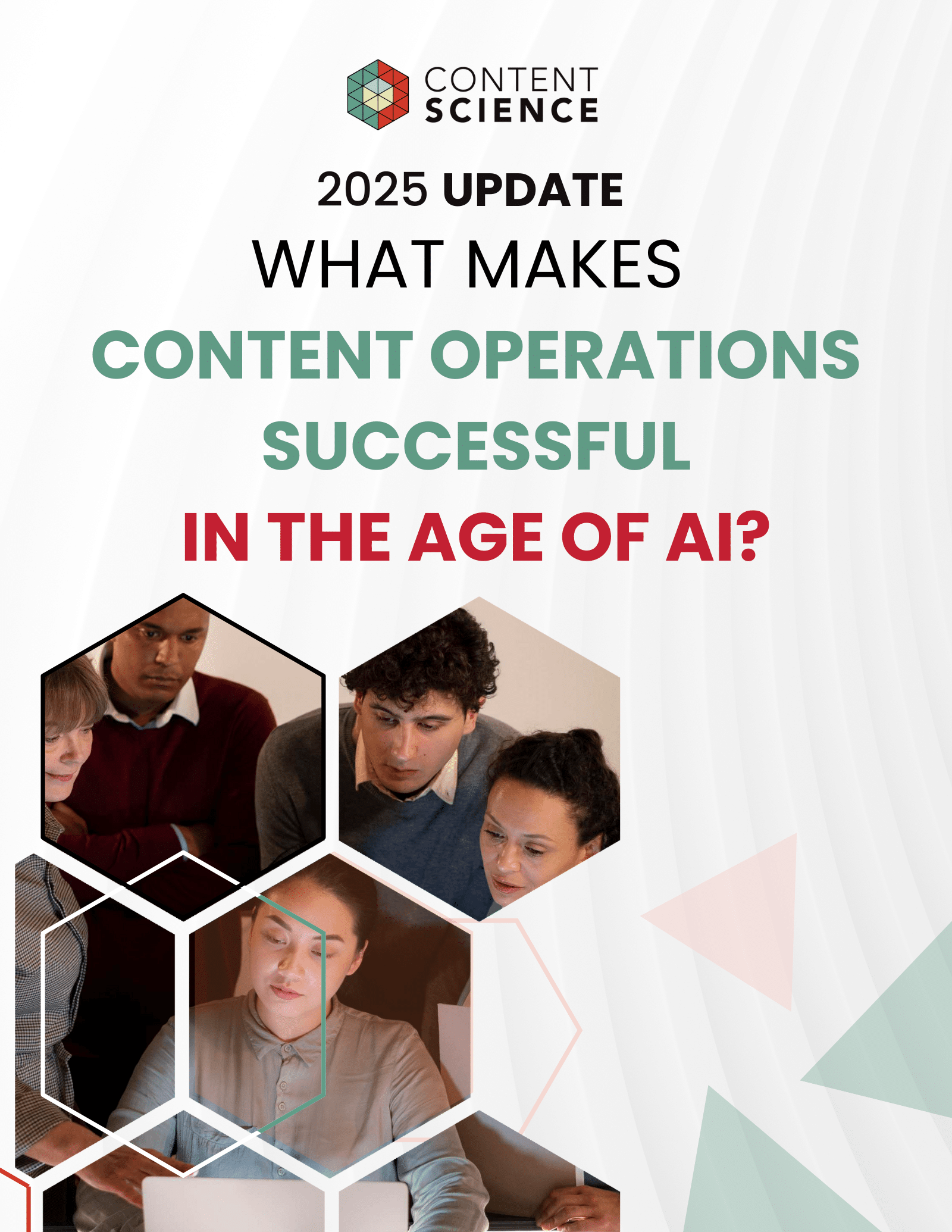
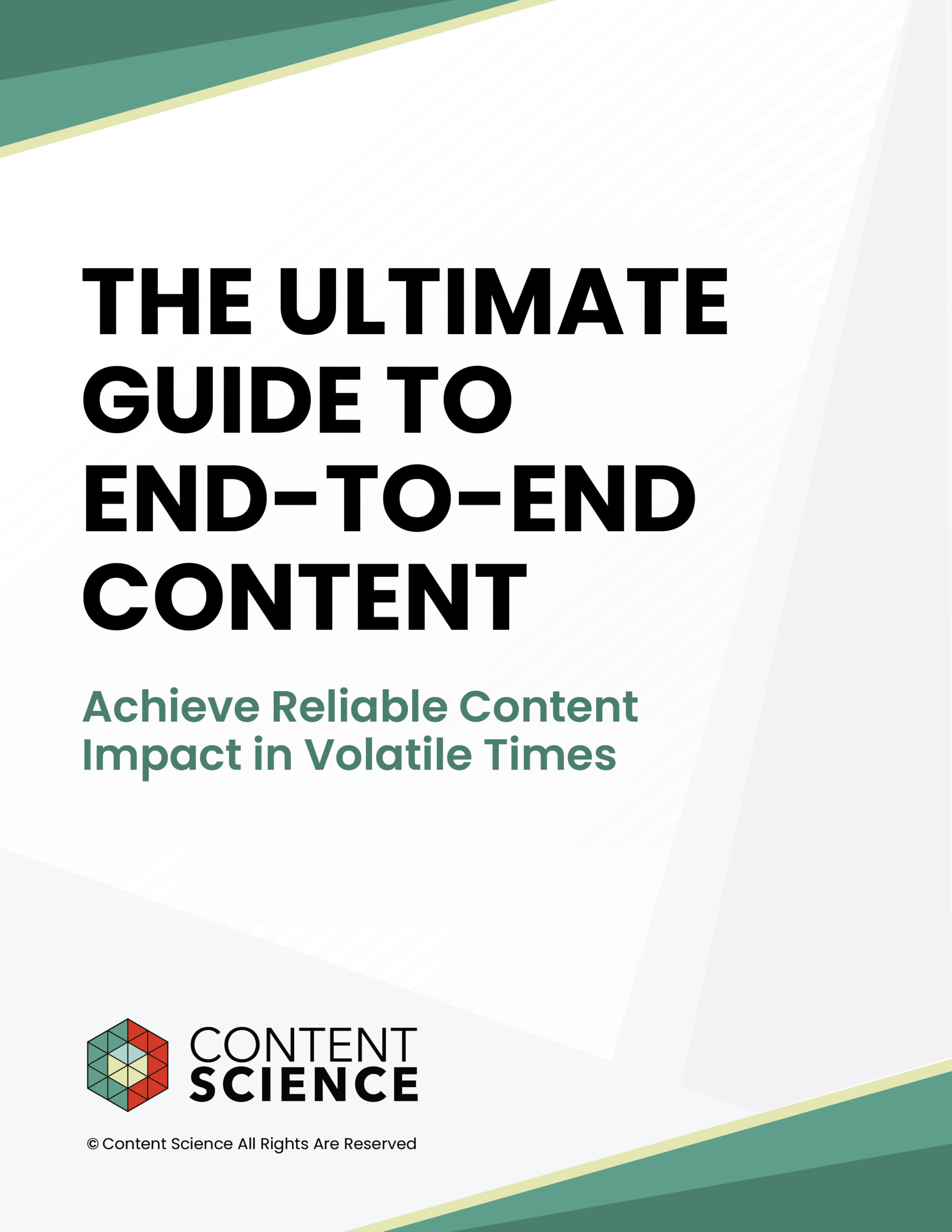
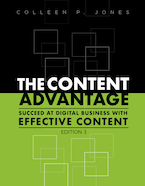
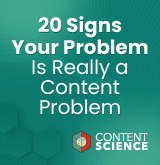
Comments
We invite you to share your perspective in a constructive way. To comment, please sign in or register. Our moderating team will review all comments and may edit them for clarity. Our team also may delete comments that are off-topic or disrespectful. All postings become the property of
Content Science Review.